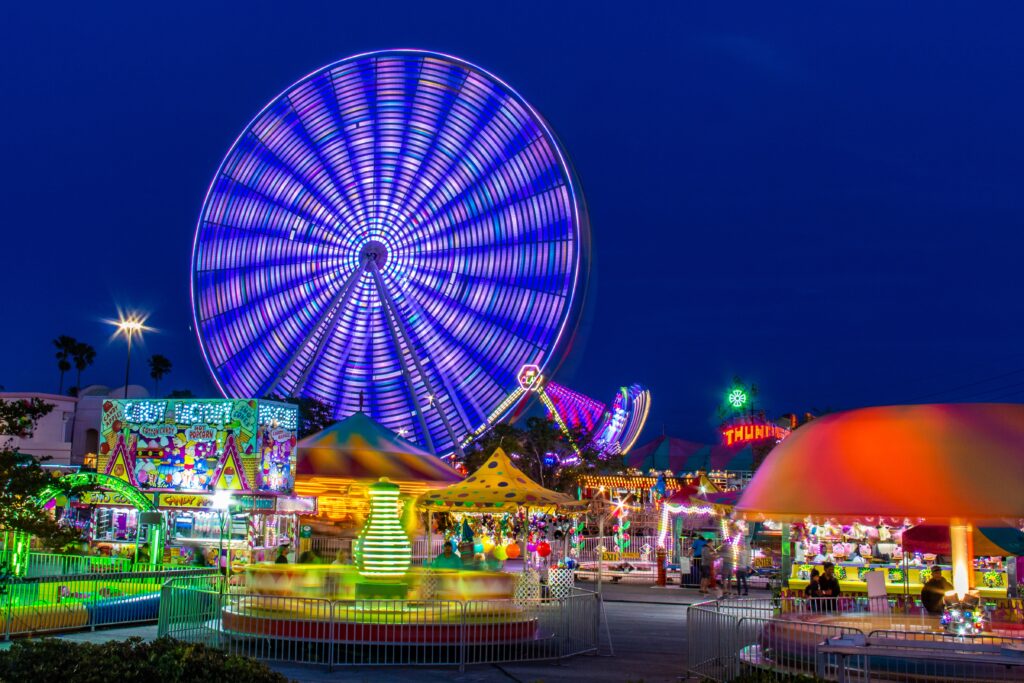
From improving the emotional well-being of disabled people to generating more wholly positive perceptions of accessibility in the public consciousness, creating accessible and sustainable leisure facilities not only creates positive social awareness of disability issues (particularly among non-disabled children) but also allows disabled people from all walks of life the ability to enjoy leisure activities without prejudice, alienation, or isolation.
That is to say that a genuinely accessible theme park embodies everything that the theoretical notion of the “Social Model” of Disability, which Direct Access uses as a framework for access auditing and consultancy, seeks to address. By breaking down systemic barriers that have made the human desire for fun and play challenging for disabled people, while addressing the realities of social exclusion within a specific industry that has historically (mainly out of ignorance) ignored it, accessible theme parks are the future of the live entertainment industry.
Over the years, accessibility in entertainment complexes have been addressed with mixed results. One common example of this in many well-meaning theme parks is offering disabled children immediate access to particular rides via queue-jumping, a methodology has serious implications for the social perception of disabled people, taking a one-size-fits-all all approach that doesn’t really make sense, effectively stigmatising disabled children. This particular approach isolates disabled people from non-disabled people, which in extreme circumstances can generate ableist attitudes in non-disabled children who wonder why they didn’t get to go on the ride first.
A rare example of accessibility done right within this industry came about in 2010 when Morgan’s Wonderland in Texas became the world’s first fully accessible theme park to fully embrace the Social Model – ensuring that all of its attractions were fully accessible and catering to the needs of wheelchair users, neurodiverse children, visually impaired people, deaf people, and countless more. In addition, the park does not discriminate and welcomes many non-disabled guests annually.
Founded by Gordon Hartman in response to his daughter, Morgan, being discriminated against by non-disabled children at a hotel they stayed at while on vacation, this theme park currently welcomes thousands of visitors and admits disabled people entry completely free of charge, and also provides everything from adaptive swings to accessible carousels to a sensory village.


When one considers the incredible success story of a theme park turned entertainment enterprise that developed rides to suit people of all abilities while also not charging it’s disabled visitors a single dollar, it demonstrates that providing accessibility not only helps to make society a better more inclusive place, but also has the potential to be incredibly lucrative.
Working on Expo 2020 Dubai during the planning and construction phases, Direct Access helped to embed in the architects and project management team a conscious awareness, and respect, for the needs of its then estimated 24 million visitors, many of whom were likely to be disabled.
As Directors of Accessibility, Direct Access advocated for fully accessible entertainment facilities, introducing innovations such as quiet areas, relief areas for service dogs, hearing loops for on-site audio facilities, ear defenders, sunglasses, sensory rating cards for every pavilion (allowing neurodivergent visitors to understand the intensity of a particular attraction on the senses in advance of their visit), and accessible wayfinding, which took the form of Tactile and Braille Map Boards. It resulted in not only the most accessible, but also one of the most well-attended world expositions ever.
Many of the ideas implemented at Expo 2020 could be very easily introduced to theme parks on a more modest budget. It is a complete myth that embedding accessibility into the design of built environments results in more expensive build projects. As a matter of fact, considering accessibility from the start of construction projects prevents the need to retroactively accessibility into an already-established site, an approach which was instrumental to the success of both Expo 2020 Dubai and Morgan’s Wonderland.
Direct Access can help you reach out to the disability community by providing accessibility audits and consultancy based on our lived experience as disabled people. From ensuring that the terrain of a site is accessible for wheelchair users, to providing braille interpretations of on-site audio-visual media, the barriers to access are often uncomplicated and come with simple, practical solutions. Offering guests sensory rating cards and ensuring easy-to-understand wayfinding is available throughout the site can transform your theme park or fairground from a place that disabled people could only dream to visit, to a diverse and inclusive space that encourages everyone’s enjoyment.

Unit 3706,
Platinum Tower JLT-PH1-12,
Jumeirah Lakes Towers,
Dubai,
UAE.
Explore our free guides on accessibility and inclusion, crafted by our experts. Click Here.